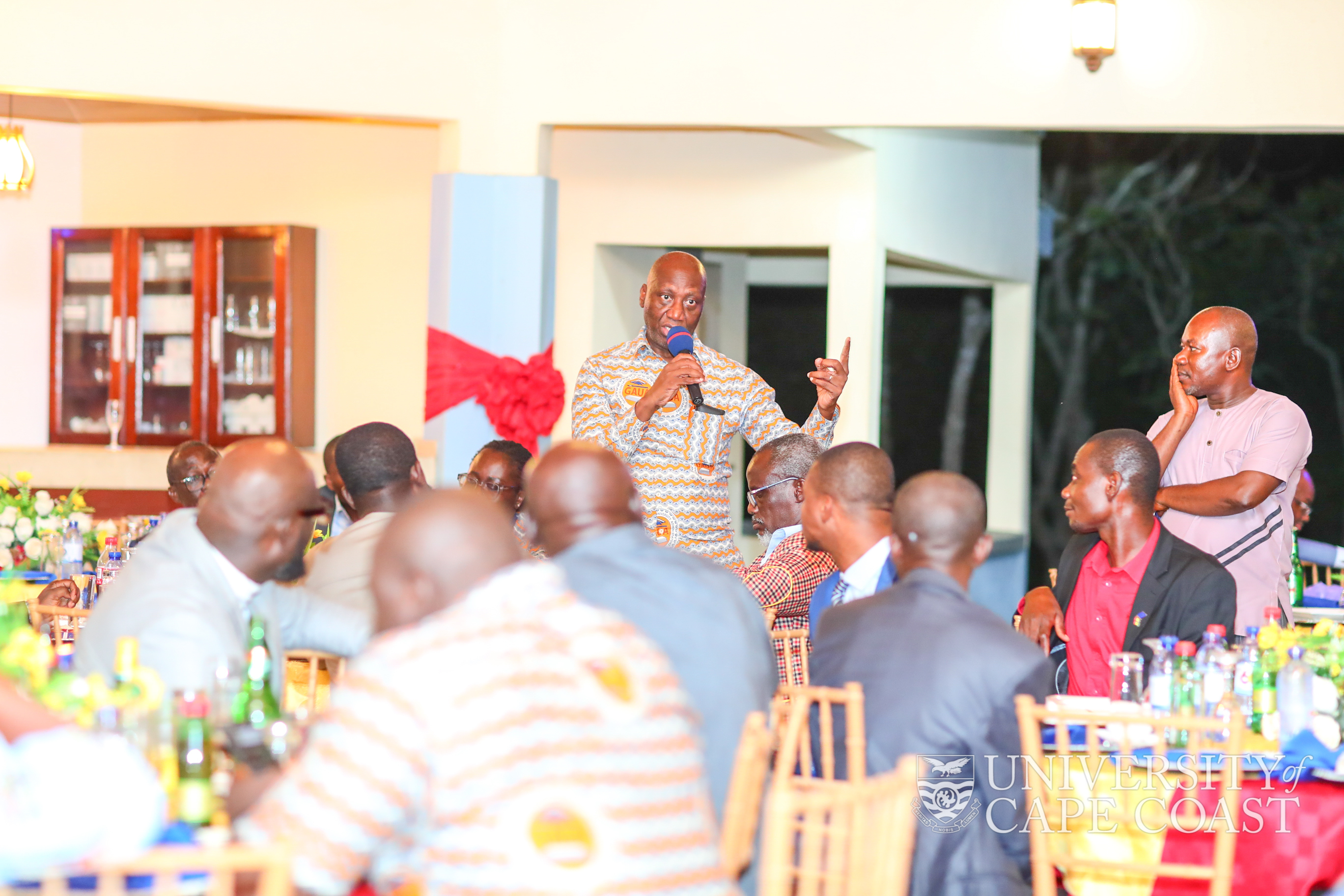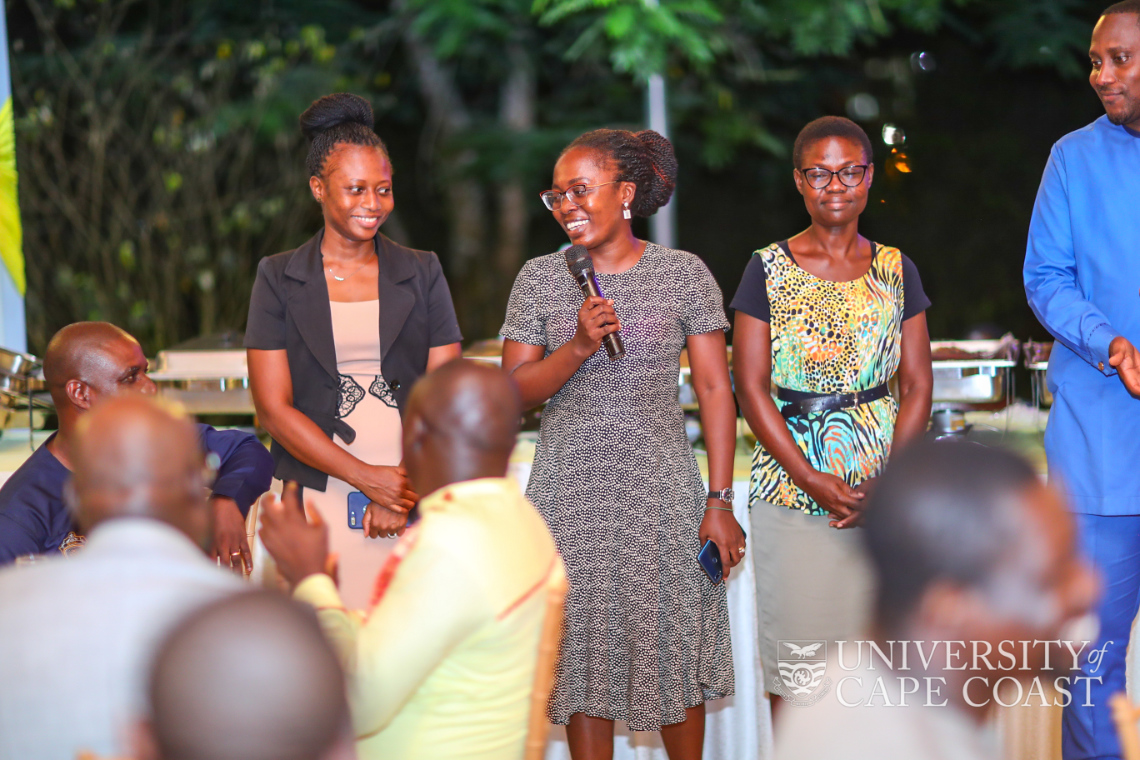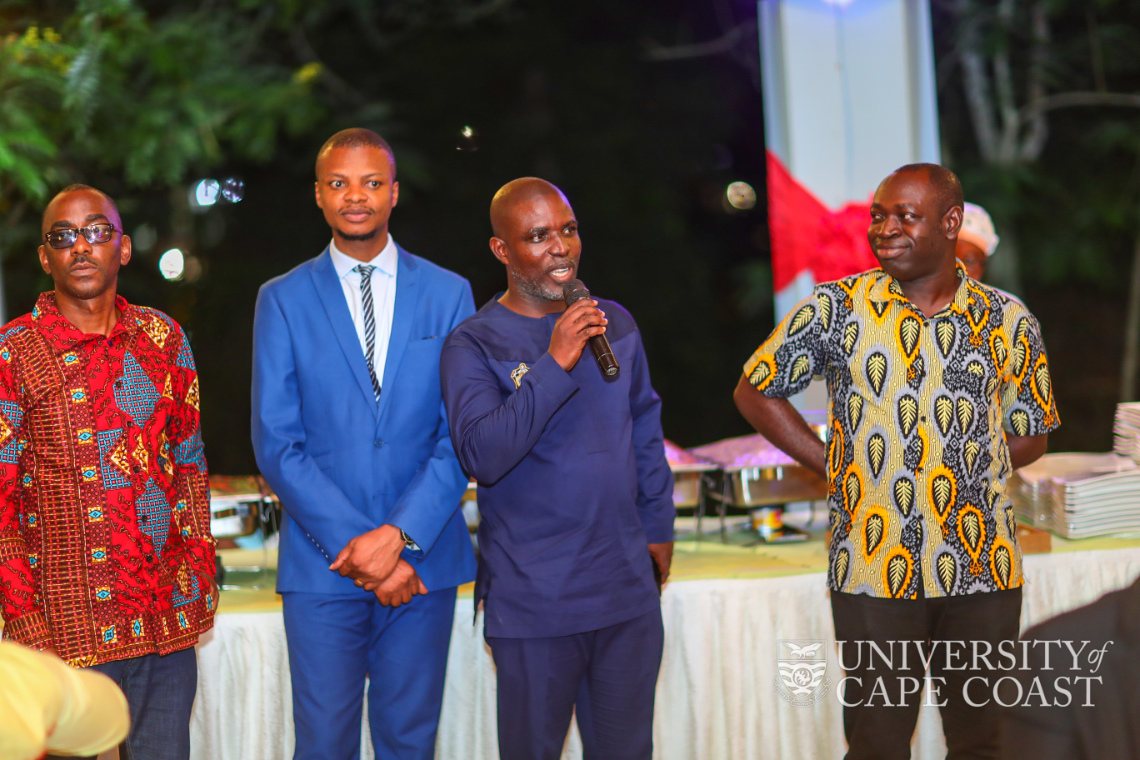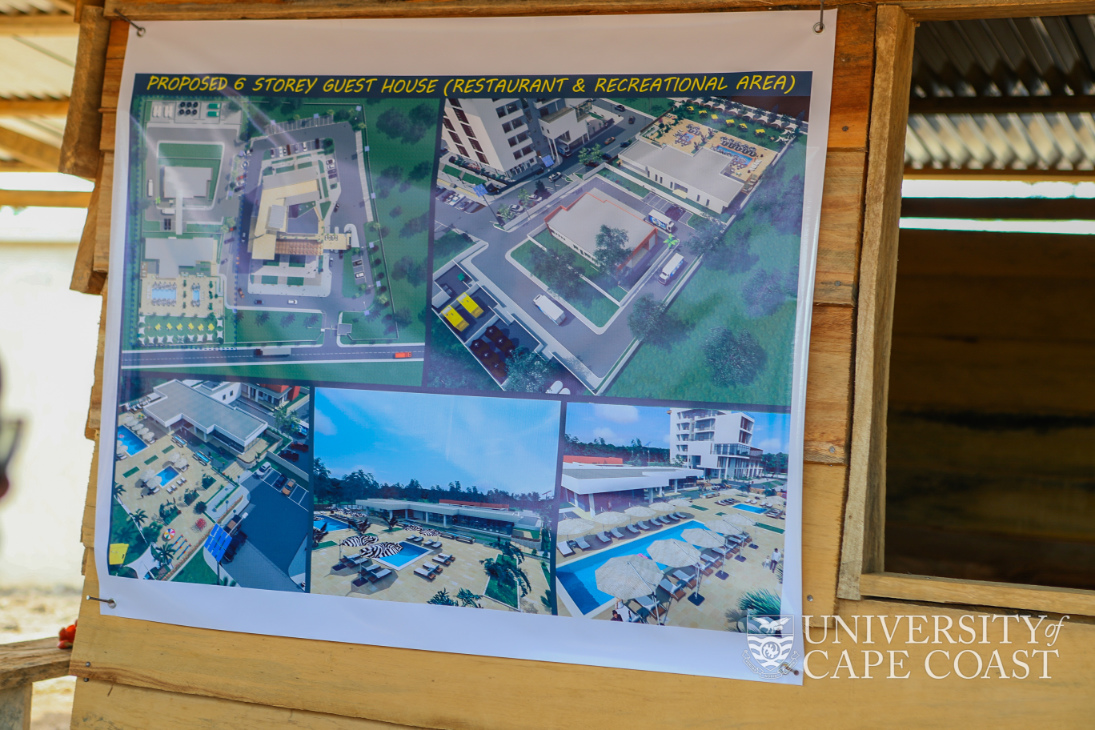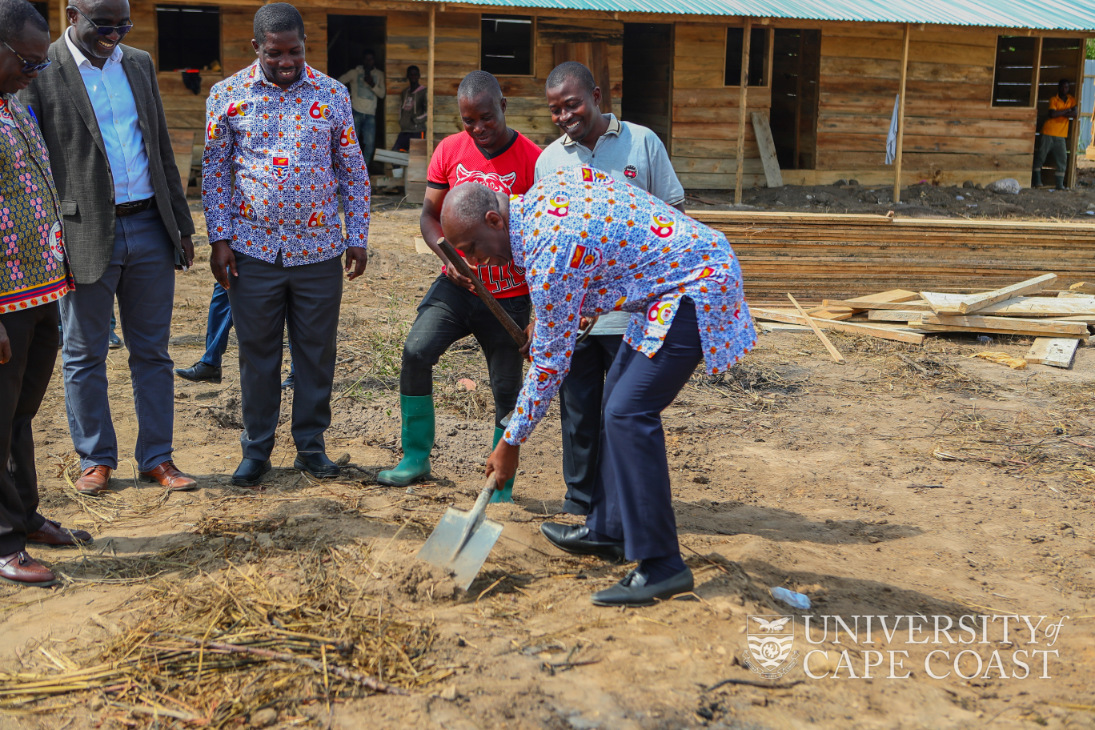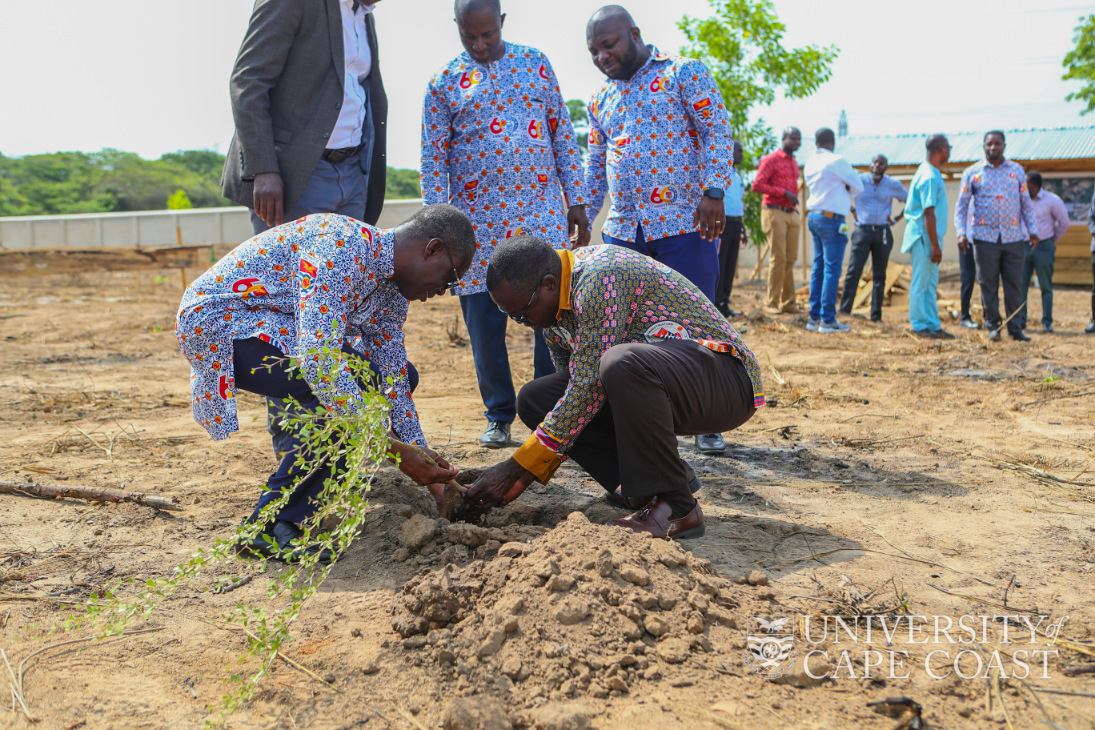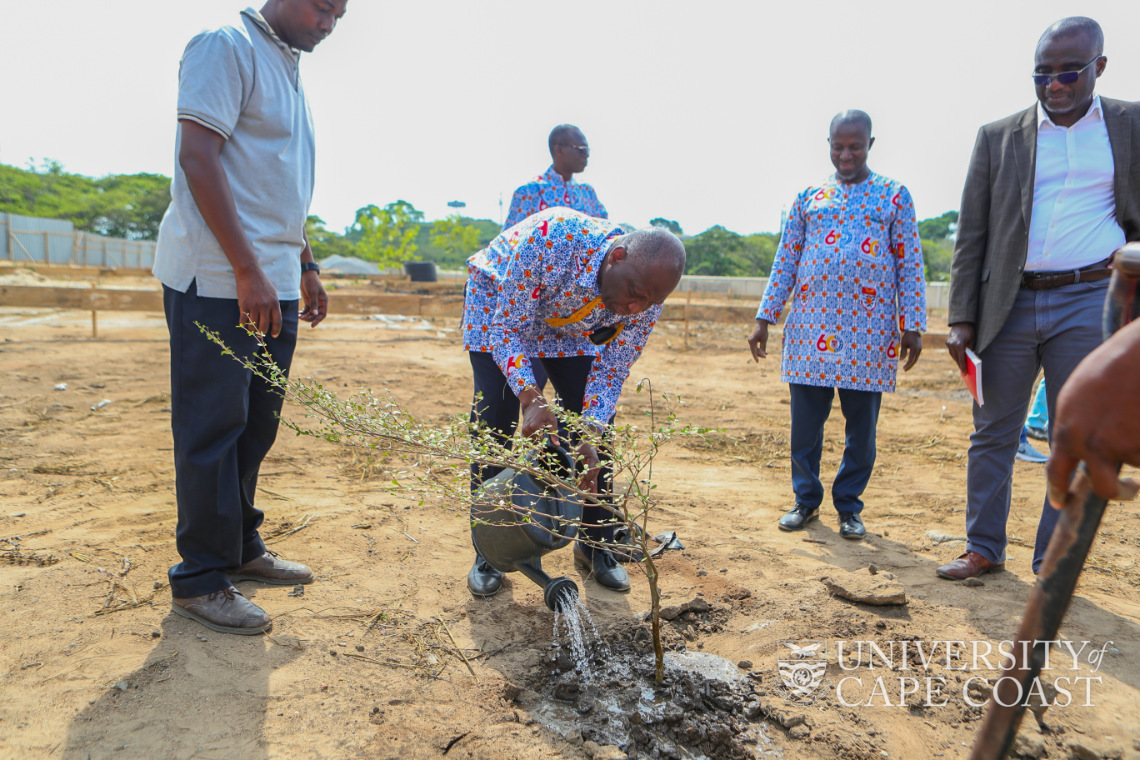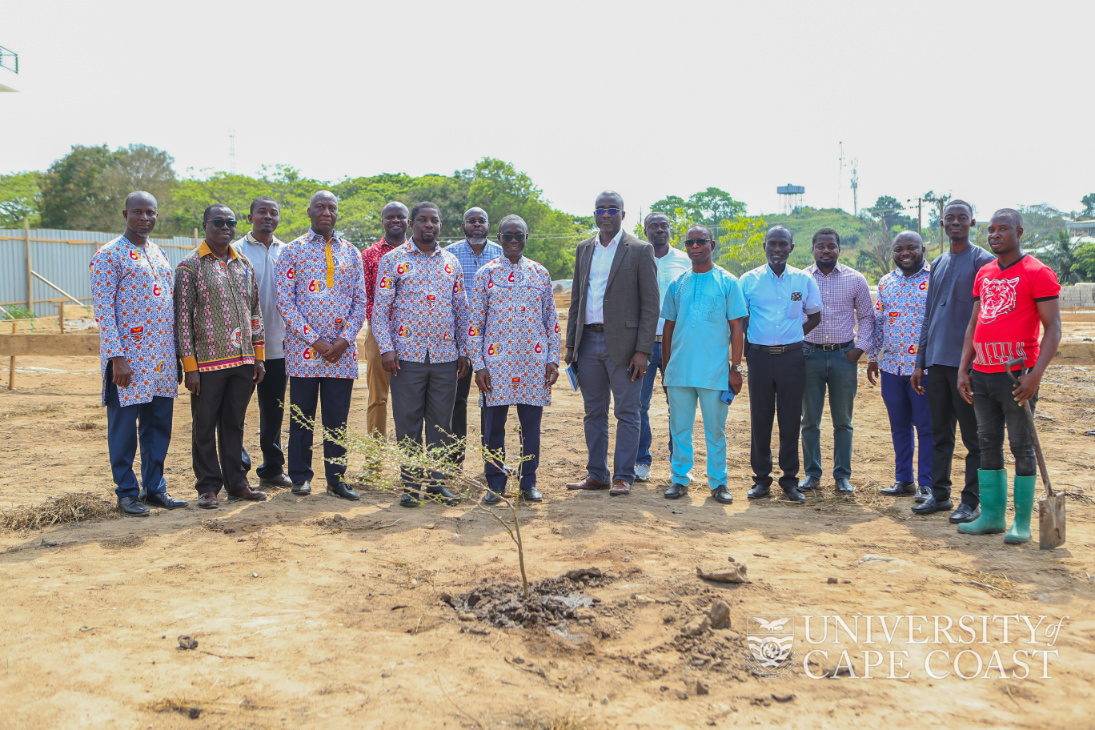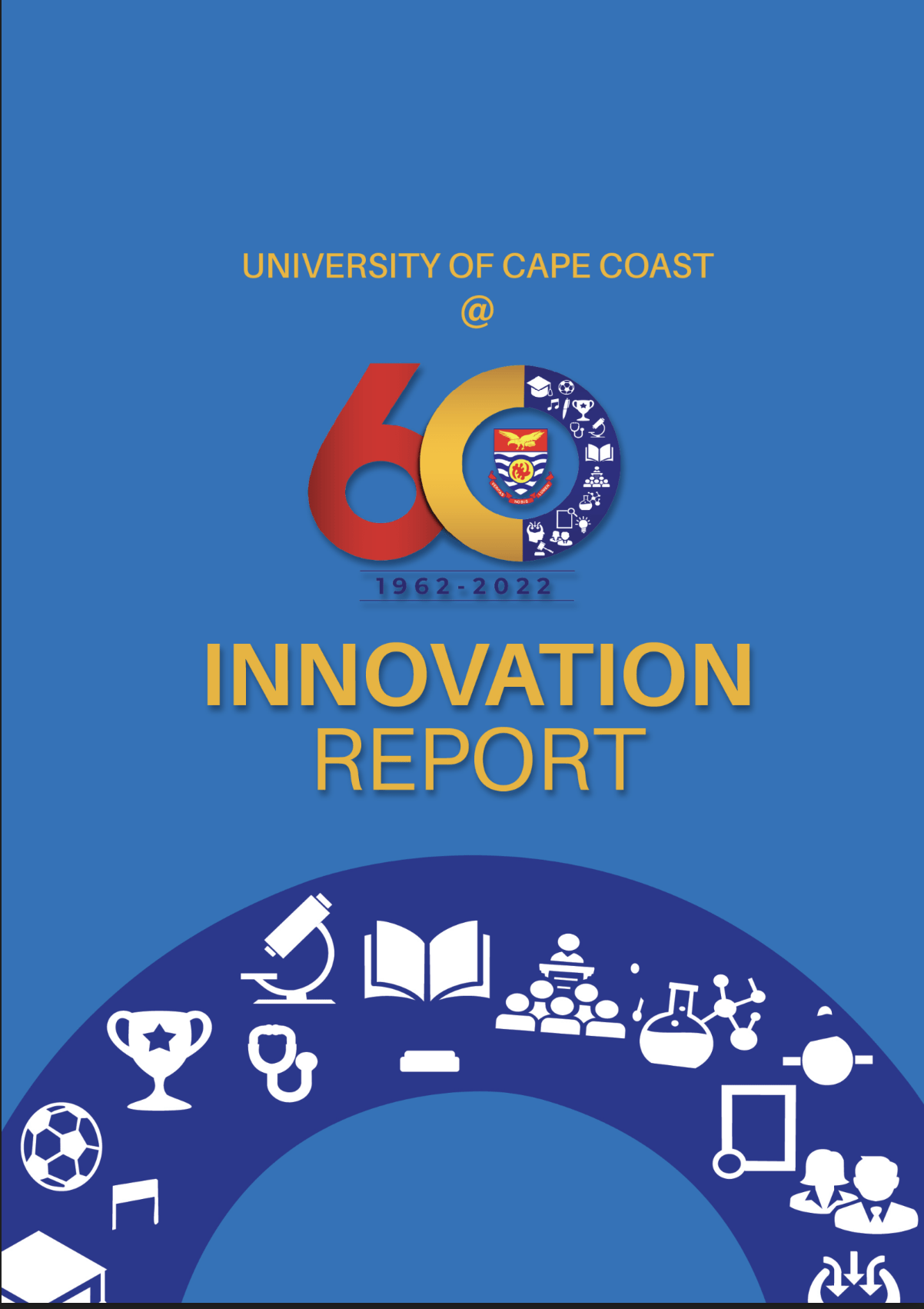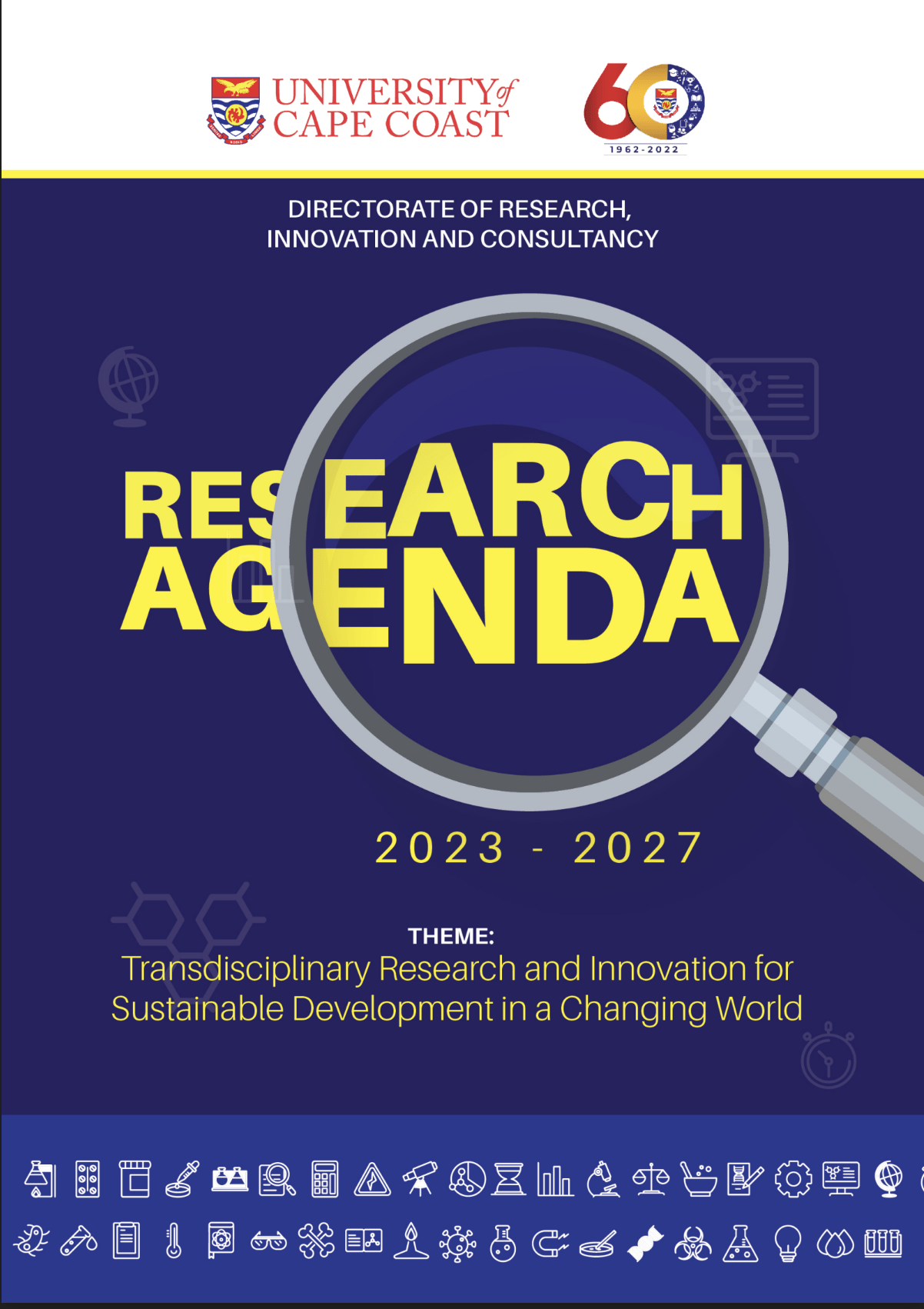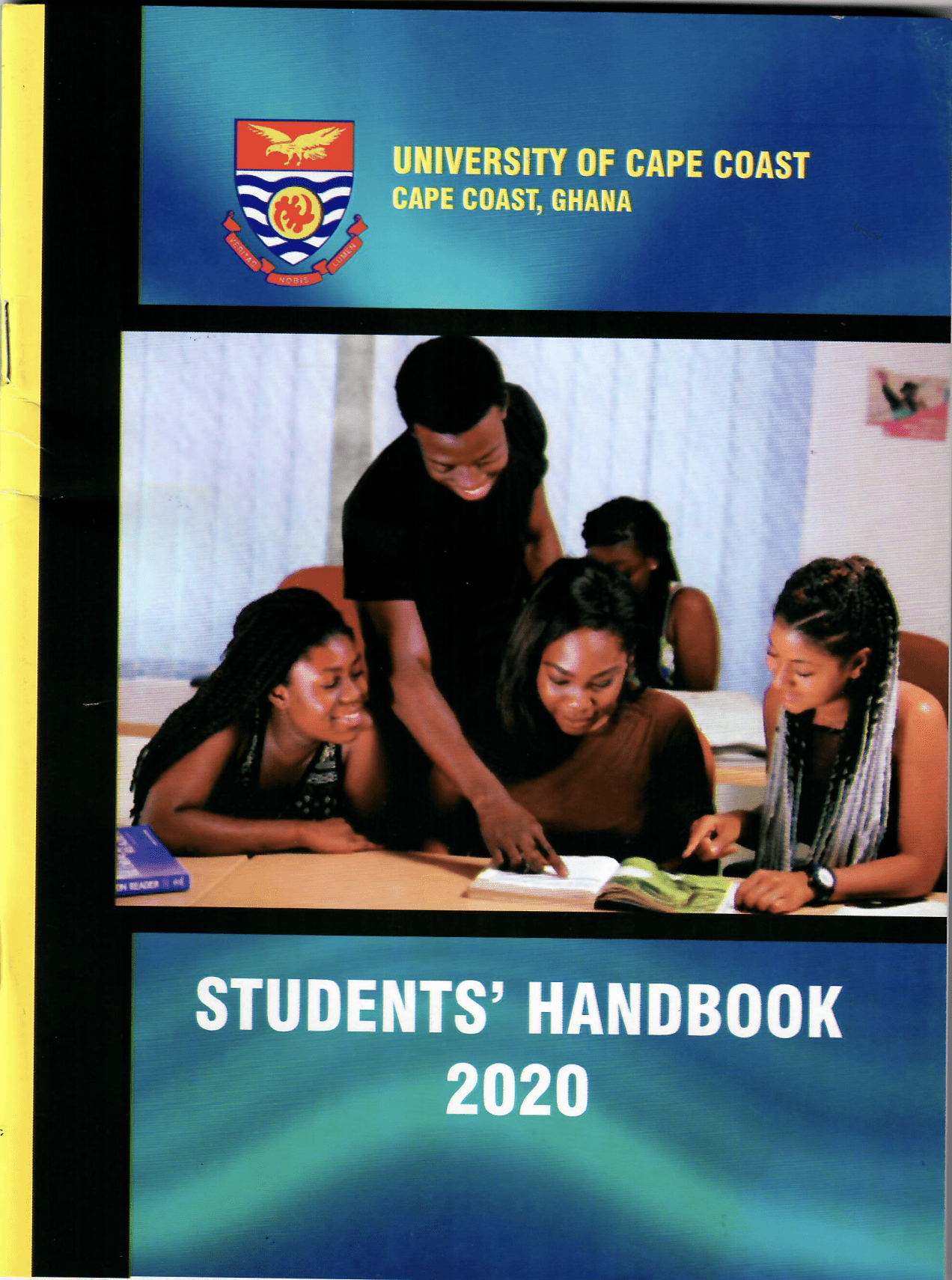A grand reception was held at the Vice-Chancellor's Lodge for newly-appointed Senior Members of the University of Cape Coast.
Also at the reception were senior members who had returned from study and sabbatical leaves.
The Registrar addressing the newly appointed Senior Members
The annual event, full of entertainment and fun, gave senior members the opportunity to wine, dine and network.
They were entertained by the Suapond Band from the Department of Music and Dance, which provided melodious tunes.
The Vice-Chancellor, Prof. Johnson Nyarko Boampong, in a brief remark during the event, urged the Senior Members to engage in intensive research that would make the University maintain its position as the best in Ghana and beyond.
A section of the newly appointed Senior Members
He, therefore, entreated senior faculty, especially professors and technocrats to continually mentor and groom the young ones through supervision and joint publications.
The Vice-Chancellor urged them to work hard to link their research to industry.
Some of the newly appointed Senior Members
Prof. Boampong, who used the opportunity to answer burning questions asked by the freshly-appointed Senior Members, congratulated them on their appointments, while welcoming those who had returned from study and sabbatical leaves to the University.
Present at the function were the Registrar, Mr. Jeff Onyame; Provost, College of Distance Education, Prof. Anokye M. Adam and some Deans and Directors.


